While the supply chain and storage of vaccines of any kind have always been key, knowing the storage guidelines is more important than ever before. Luckily, “strive for 5” helps simplify and explain these extremely valuable guidelines.
What does “strive for 5” mean?
The phrase “strive for 5” refers to the perfect vaccine storage temperature: 5 °C. While this is the ideal temperature, acceptable vaccine fridge temperatures for vaccine storage range from 2 to 8°C (Some vaccines require different storage conditions outside of this standard. Please check the details of the specific vaccine if unsure about its storage conditions). This is the recommended temperature because vaccines can be damaged or destroyed if they are stored in warmer or colder climates. The Australian Department of Health created the National Vaccine Storage Guidelines in order to standardise the most successful methods.
The national guidelines detail how to make sure your clients receive effective vaccinations by maintaining an effective cold chain. A cold chain is a term used to describe how the supply and shipping chain keep the product or vaccine at the right temperature from the point of origin to its final destination. The guidelines also explain what should happen in the event that the cold chain is broken.
In order to maximise vaccine management across the nation, Australia has passed several laws on vaccine storage that must be followed closely.
Why are vaccine storage guidelines important?
In order to conserve the immunisation of a vaccine, from the time it’s manufactured to the time it is administered, the vaccine must be carefully stored at 2 to 8°C. This is important because poorly managed vaccines can have extremely dangerous consequences. As a result of being stored in less than ideal climates, the stability and potency of the vaccines suffers.
If a cold chain breach occurs, follow these steps:
- Ensure that the affected vaccines are isolated and labeled with a sign that signals that the vaccines should not be used.
- Move the impacted vaccines to a temporary storage area with ice or gel packs.
- Contact your state or territory health department.
- Don’t throw away the vaccines until instructed to do so.
Australian immunisation service providers, especially those who have been administering vaccines to protect against COVID-19, strive to prevent and destroy dangerous diseases. Proper storage is a key part of this, and the mismanagement of the cold chain results in wasted vaccines and lost financial capital. In addition to throwing away damaged and unusable vaccines, clients of medical practices, large hospitals, clinics or mobile services may have to be re-vaccinated. This is not only wasteful of the product, but can breed uncertainty in patients.
The more effective storage precautions healthcare providers take, the higher the immune responses of their clients and the stronger the community’s protection will be against dangerous and possibly deadly diseases. Australian vaccine storage laws mandate that the product is protected from the light because UV and fluorescent light encourage an increasing lack of vaccine potency.
Immunisation service providers must train their professional staff in vaccine storage and cold chain management, which helps standardise the process across all administrators. Workers and volunteers must obtain a certificate of completion from the NSW Health Vaccine Storage and Cold Chain Management online learning module.
To assist in maintaining correct procedures, every 12 months a vaccine storage self-audit must be performed by immunisation providers. The self-audit comes in the form of a checklist that is to be completed and stored for reference. The checklist can be found in the National Vaccine Storage Guidelines, and it includes:
- Nominated person responsible for vaccine management
- Nominated back-up person for vaccine management
- Make and model of refrigerator
- Date of self-audit
- Person conducting audit
Testo’s solutions for vaccine management
The COVID-19 pandemic has reminded us of the importance of vaccine chain management and storage compliance. For over 20 years, Testo has made reliable and effective storage equipment and temperature monitoring devices for pharmaceutical companies. Optimal storage of vaccines and prevention of temperature fluctuations is possible through Testo’s cold chain solutions.
Environmental and temperature monitoring in refrigerators and freezers is necessary to maintain vaccine efficacy. Testo offers top-of-the-line equipment and software to manage and document temperature and data. Here are two products that offer temperature controlled storage/monitoring solutions:
- testo Saveris 2: WLAN data logger with an alarm function that alerts when limit values have been violated.
- testo 184 transport data logger series: The series offers complete monitoring of the cold chain monitoring temperature, humidity and shock for maximum data security.
Sustaining an effective cold chain can mean the difference between a healthy community and a vulnerable one. From regular yearly vaccinations to the new COVID-19 vaccine, remember to strive for 5 °C from point of origin to time of administration. Testo has the equipment and software to ensure safe and proper storage of these vaccines. Be sure to reach out to Testo with questions about which product is best for your specific needs.
1. Some vaccines require different storage conditions outside of this standard. Please check the details of the specific vaccine if unsure about its storage conditions.





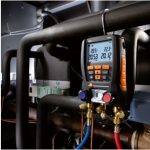
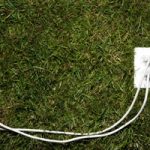


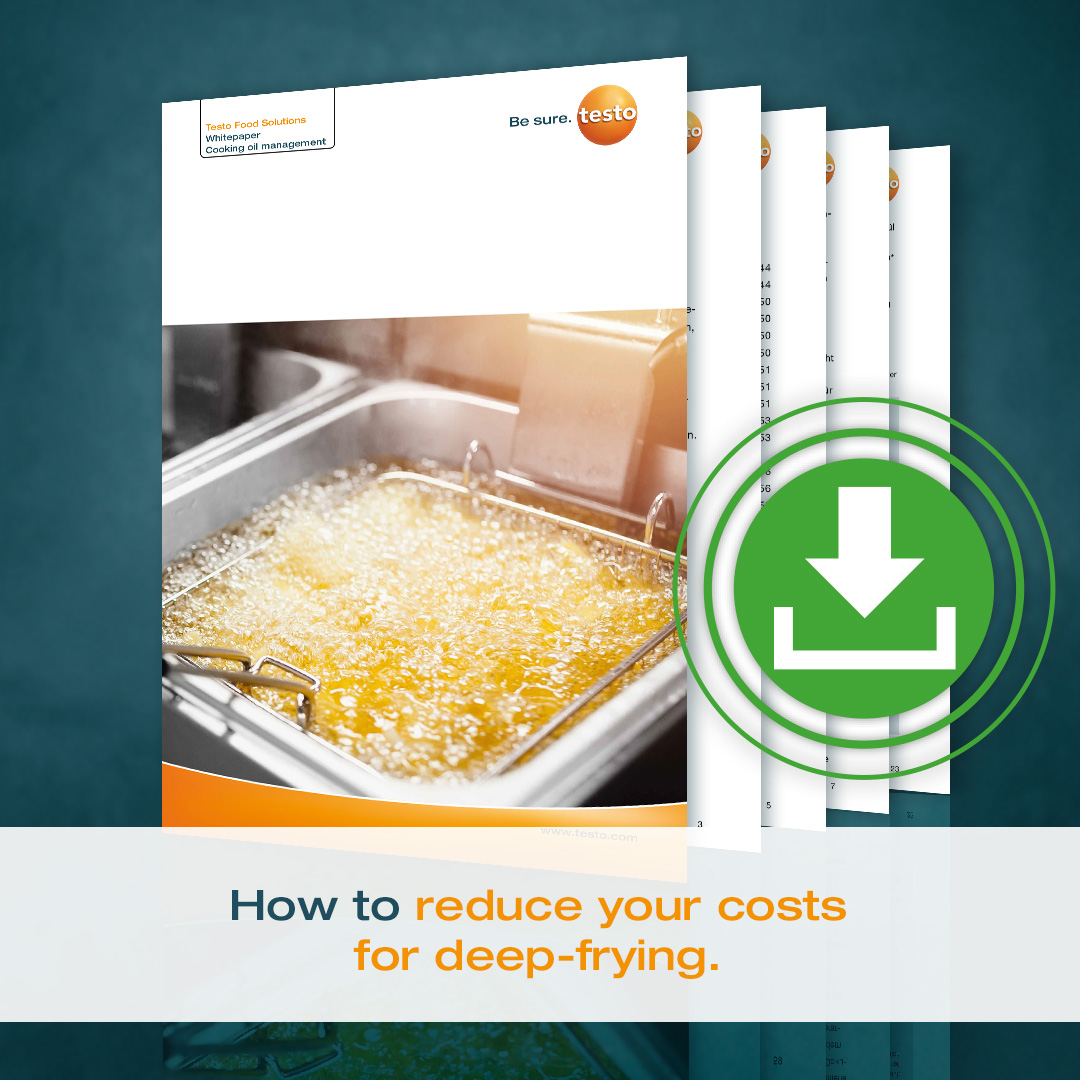 Reduce cooking oil costs while ensuring quality
Reduce cooking oil costs while ensuring quality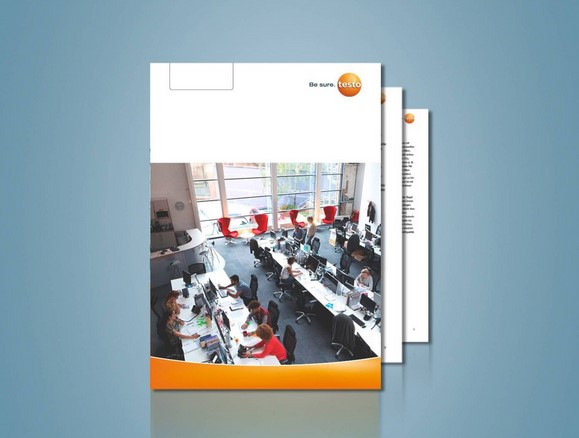 Expert knowledge on CO2 monitoring
Expert knowledge on CO2 monitoring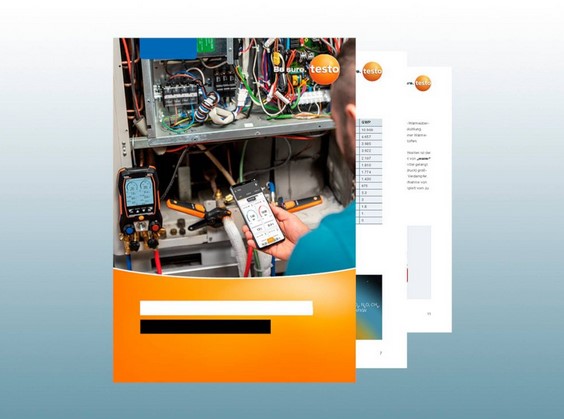 Refrigeration knowledge - in 3 modules
Refrigeration knowledge - in 3 modules



